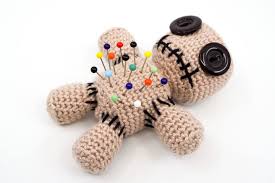Dr. Nadler runs an active experimental research lab in the Fall, Spring, and Summer and is always looking for talented and motivated students to work as research assistants (Psyc 491). Dr. Nadler’s research mainly focuses on the psychological impact of stereotypes in biased work place decision making (selection, promotion, performance appraisals, and compensation). Although the majority of Dr. Nadler’s studies focus on gender stereotypes, he has also researched sexual harassment, diversity training, stereotype threat, and sexual orientation.
Current Studies
Fall 2021 - Spring 2022
|
Are We Ready for the Singularity? Predictors of AI Acceptance: Many experts are predicting artificial intelligence (AI) will continue to take over previously human conducted tasks such as customer support, driving, and sales (Semuels, 2020). Indeed some futurists are predicting AI’s will likely become ‘aware’ by 2035 (Schulze-Makuch, 2020). Research has found difference in the acceptance of AI as well as examining how to better incorporate AI systems in businesses (Klumpp, 2018). We examine the current status of acceptance of AI from four crossed dimensions of daily life; micro (one on one interactions) to marco (overall systems) and personal (impacting our close relations) to impersonal (day to day activities).
|
|
Work -Related COVID-19 Restrictions, Social Media, and General Health: COVID-19 has changed life starting in 2020and continuing through 2021 through increased work restrictions, and by increasing individual financial strain (Neel, 2020). Coping mechanisms for reducing stress are correlated with socioeconomic status (SES) (Taylor & Seeman, 1999). Work restrictions correlated to COVID-19 may result in work disruptions related to other factors such as free time and general health particularly for those that prefer family and work environment separation (Cho, 2020). Thus (H1) we expect that social media usage and general health will correlate with work-related restrictions and (H2) will also be further predicted by amount of education.
|
|
Gender, Sexism, and Personality - Predictors of Sexual Openness and Stigma: Society teaches the idea that women are communal and men are agentic and these traditional gender roles are found in men and women (Heilman, Wallen, Fuchs, & Tamkins, 2004; Nadler & Stockdale, 2012). Additionally, women are less tolerant of sexism and more rejecting of traditional gender roles compared to men (Stockdale & Nadler, 2102; Russell & Triggs, 2004). Based on previous research we expect that men will report more sexist attitudes but be more open regarding sexual behaviors supporting traditional gender roles. However, these differences will be relatively small compared to previous studies as overall attitudes continue to shift within the U.S..
|
|
Who is More Politically Active? Politics, Gender, and Social Media: Social media continues to become a primary source of news and information for a growing percent of people within the U. S. (Shearer, 2021). Additionally, past research had found differences in political activities (campaigning, voting, promoting candidates) dependent on gender, social economic status (SES), age, and party affiliation (Coffe & Bolzendahl, 2010; Reagan, 1987). We examined demographic, social, and political affiliation differences on political activities.
|
Previous Studies
Fall 2020 - Spring 2021
|
COVID-19 Restrictions: Rates and Impacts of Work-Related Stress: COVID-19 has changed life in 2020 through increased work restrictions and by increasing individual financial strain (Neel, 2020). Coping mechanisms for reducing stress are correlated with socioeconomic status (SES) (Taylor & Seeman, 1999), and thus we expected work-related stress to correlate negatively with measures of SES. Additionally, work restrictions correlated to COVID-19 may result in work disruptions creating additional stress particularly for those that prefer family and work environment separation (Cho, 2020). Thus we expected that work-related stress will correlate positively with work-related restrictions and will also be predicted by trait anxiety. Finally, we expected that SES, COVID-19 restrictions, and trait anxiety will all uniquely contribute to work-related stress. In order to verify these hypotheses, we distributed a survey that was shared on Amazon's Mechanical Turk (MTurk) platform.
|
|
Gendered Avatars and Devil’s Advocates: Impacts on Reactions and Performance: Past research has shown there are stereotypical reactions to gender as represented by online avatars (Palomaki et al., 2016; Wijenayake et al., 2019). There has also been substantial research on positive and negative feedback effects on performance and reactions (Palomaki et al., 2016). However, research has only started to understand the impact of using a Devil’s advocate approach to feedback but have already found it to have positive effects on creativity and problem-solving (Nemeth et al., 2001). This study attempts to expand the research by examining the effects of an avatar’s perceived gender and type of feedback (e.g., positive, negative, or devil’s advocate) in a three-part online task. Devil’s advocate feedback is neither positive (praise) or negative (criticism) but is focused on challenging the person to find better ways to complete the task. Following the tasks and feedback, participants’ performance and reactions to feedback were measured. This research hopes to bridge the gap in the literature on avatars and feedback, specifically the use of a Devil’s advocate approach and their effects on performance and reactions to feedback.
|
|
MTurk for Working Samples - Evaluation of Data Quality 2014-2019: Multiple studies were aggregated using Amazon.com’s MTurk crowd sourcing site for data collection from 2014-2019. Amazon.com’s Mechanical Turk (MTurk) is an online site that allows workers to complete “hits” for small payments (typically $.05 -S1.50) resulting in participants completing research projects (Mason & Suri, 2011). MTurk continues to grow in popularity within the social sciences. Past studies suggest MTurk users are more representative of the U.S. population compared to college student samples and show similar survey response variability as lab setting participants (Mason & Suri, 2011). We examined the impact pay, focused samples, and attention and manipulation checks on demographic characteristics and data quality. Based on our empirical findings, we provide suggested guidelines to maximize the quality of MTurk samples.
|
Fall 2019 - Spring 2021
|
Virtual Badges and Personality Impact on Online Belonging and Engagement: Virtual badges for workplace achievements has been proposed as a method for increasing engagement in the workplace. Our study examined the effects of using a reward-based system in existing virtual communities. Overall, a gamification system that incorporates virtual badging that provides a meaningful and engaging way to receive the badges can lead to an increase in motivation and satisfaction and greater engagement with online communities (Cechanowicz et al., 2013). Furthermore, this study examined the relationship between personality and a badging system. We found support of the impact of virtual badges (awards for obtaining goals) in belonging and engagement in online communities as well as in personality differences.
|
|
Replications of the 'Voodoo' doll Paradigm to Study Aggression: DeWall et al (2013) established the validity of using pins placed in a ‘voodoo’ doll as an implicit measure of aggression and their methodology has been cited in subsequent studies (Exp: McCarthy, Coley, Wagner, and Zengel, 2016). Similar to Lieberman, Solomon, Greenberg and McGregor’s (1999) adding hot sauce to food paradigm, the intent is to measure aggressive behaviors as an outcome to experimentally manipulated antecedents to aggression. We conducted an exact replication of one of theDeWall et al.’s and a conceptual replication using their methodology with alternate outcomes. Our goal was to further substantiate the use of lab manipulations to infer aggression in less controlled settings. Results support the continued use of the methodology for inferring aggression.
|
|
Video Game Aggression Measure (VGAM) - Creation, Examination, and Validation: A Video Game Aggression Measure (VGAM) was created collaborating with computer engineering students. The VGAM was created and piloted collaborating with a team of computer engineers completing their senior assignment to create an ‘8-bit’ video game that does not reward or require aggressive acts to complete the game. Though no mention of violent acts are tracked during the game, the game records all aggressive acts (number, type, and success). Pilot tests and a validation study comparing the VGAM with both explicit and implicit measures of aggressive attitudes and behaviors supported the use of the VGAM. The VGAM was significantly related to the other measures of aggression, such as the Aggression Questionnaire (AG: Buss & Perry, 1992), the Conflict Tactics Scale (CT: Straus, 1979) and DeWall et al.’s (2013) voodoo doll (VD) task. Additionally, participants were asked what the purpose of each measure was, and qualitative analysis indicated the VGAM was least likely to be seen as a measure of violence or aggression.
|
Before Fall 2019
|
Aggression Study: A psychometric evaluation of indirect measure of propensity towards aggression. The lab is working on alternate methods to indirectly but accurately measure changes in tendencies towards aggression. Previous studies have utilized fairly elaborate in-person deceptions to assess aggression (delivering shocks, loud noises, or unpleasant food to confederates trying to illicit aggressions). The lab is testing a specifically designed ‘cute’ video game that secretly tracks aggressive acts as a simpler (and potentially online) method of collecting similar information. |
|
Sexual Harassment: Accountability, Orientation, and Training: Preconceptions of the gender and orientation of targets and perpetrators of sexual harassment (SH) impact perceptions of SH. This study attempts to examine ways to reduce this bias while simultaneously examining its sources. Participants are asked to rate a series of ambiguous SH scenarios. Multiple variables are manipulated including the gender of the target and perpetrator, the type of organization in which the events occur, whether or not the participants will be held accountable for their decisions regarding the events, and whether or not the participants have received SH training. Through this study we are hoping to identify whether implicit or explicit bias drives perceptions of SH and whether these biased effects can be reduced through explicit instructions. |












